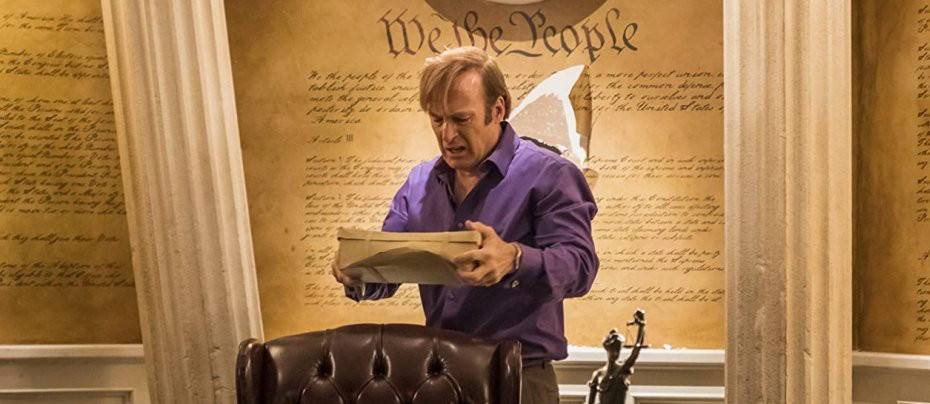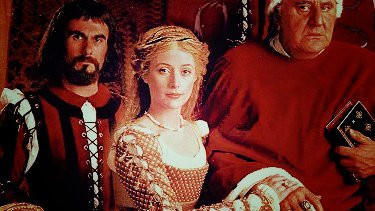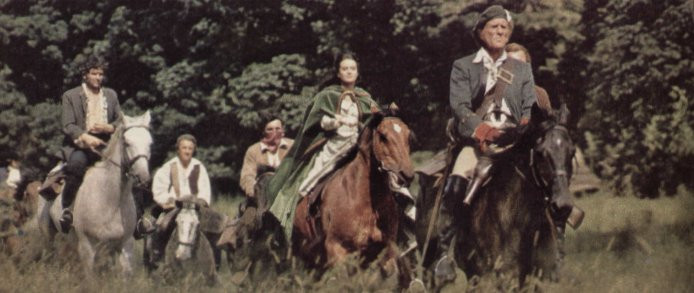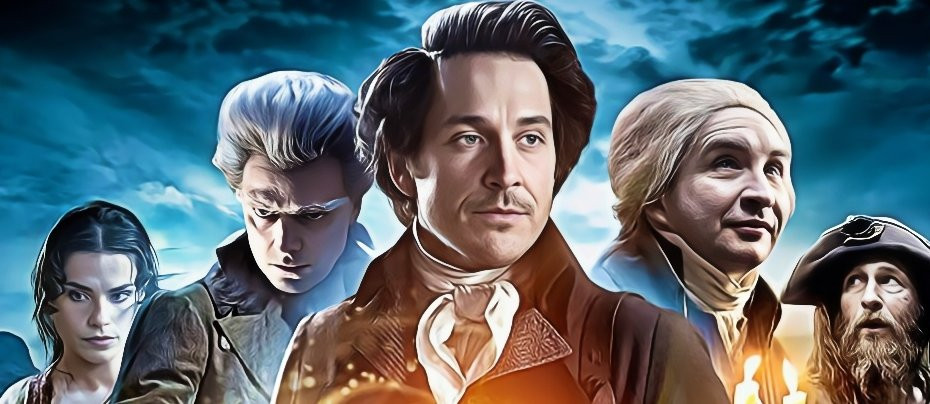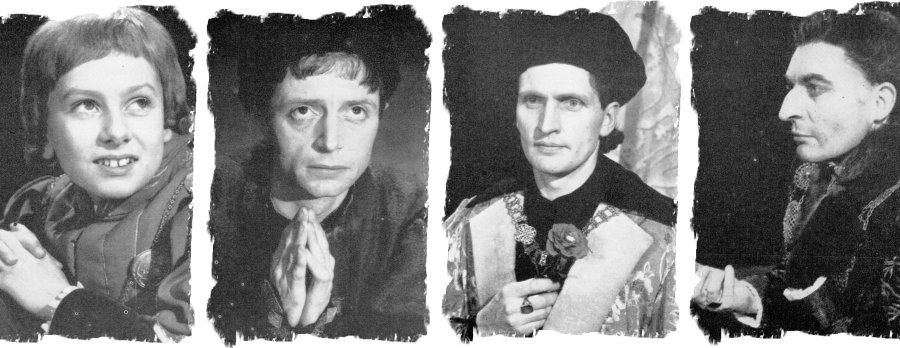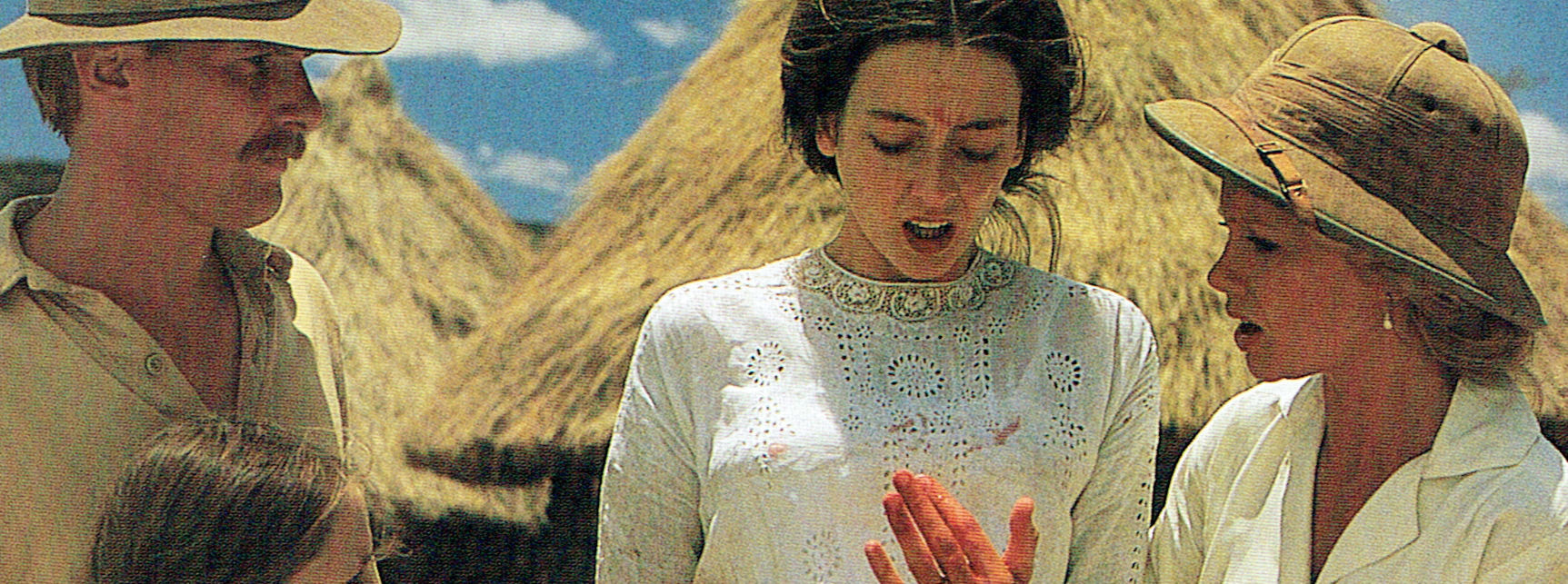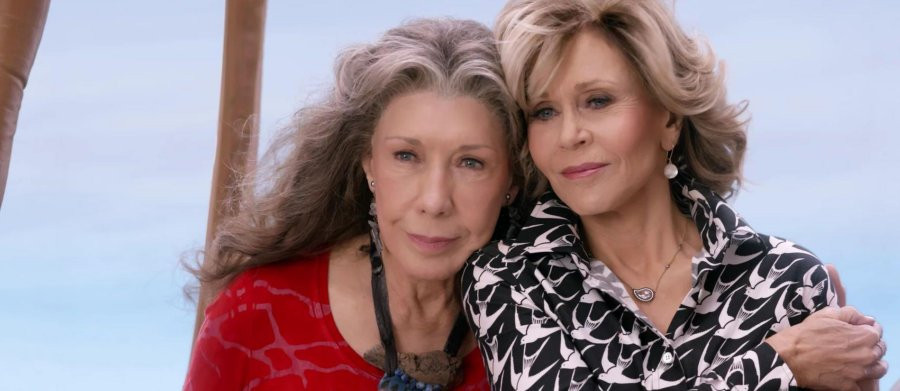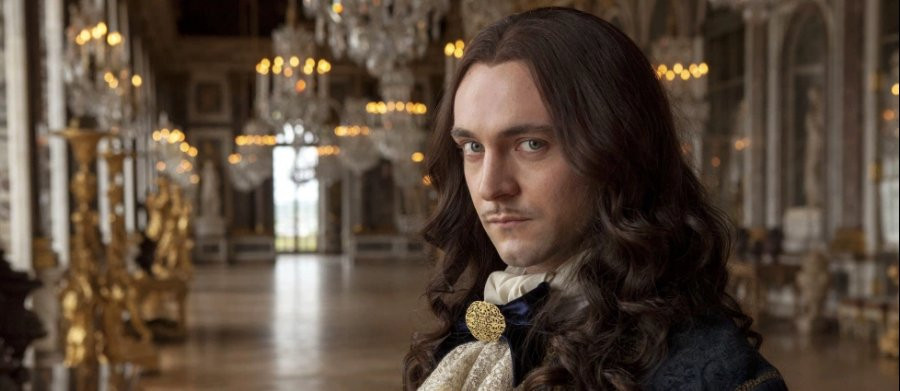
Versailles
2015 - France CanadaReview by John Winterson Richards
On the death of his powerful Prime Minister Cardinal Mazarin in 1661 the young King Louis XIV of France took personal control of his Government. Up to that point, the history of France had been a millennium of civil wars and rebellions. Despite the best efforts of successive Kings of France, and able Ministers such as Mazarin, and his even more formidable predecessor Cardinal de Richelieu, to build a strong centralised State, much of the power remained in the hands of warlike and arrogant provincial nobles. Louis retained strong memories of being run out of Paris by some of them when he was a child.
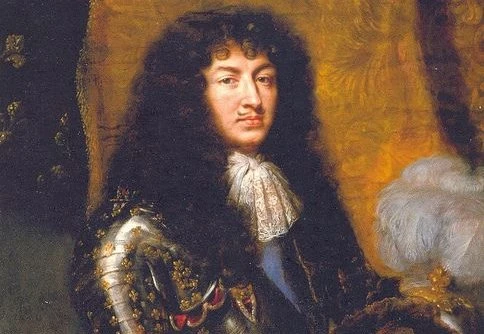
Rather than keep them down with brute force like de Richelieu, or diplomacy like Mazarin, the precocious Louis came up with a truly brilliant solution of his own. He would lure the nobility from their estates to a gigantic pleasure dome, where they would be under his direct supervision. There they would spend their money on competitive display rather than on private armies, and their energies on intriguing for Royal favour rather than actual fighting.
This was the dream of Versailles, the hunting lodge that Louis turned into the greatest palace in Europe. It succeeded beyond Louis' imagination - even if it helped to bankrupt France and, less than eighty years after his death, provoke the French Revolution. In the meantime, it was the political and cultural heart of Christendom, the international standard for all that was deemed fashionable, and the envy of other monarchs, who all tried to copy it but always fell short.
While there was an element of compulsion about it - you could not get anything done in France unless you went to Versailles - what really kept the aristos and their families in the overcrowded palace was what is now known as "fear of missing out." Versailles was a permanent party and no one wanted to be the first to leave.
The essence of this is captured quite accurately in Versailles, a Franco-Canadian television drama series which was actually filmed in English to maximise international sales. The French take great pride in their history and are prepared to splash the cash when filming it. Prestigious features and television shows are therefore often the cultural equivalent of their 'grands projets,' the great public works projects, of which the Palace of Versailles was itself the first and perhaps greatest, that are such a matter of national honour in France.
So it is no surprise that the production values of Versailles are outstanding. An unconfirmed report has it that 12% of the production budget was spent by the art department and on costumes. If so, it shows. One cannot help feeling that Louis XIV would be pleased.
The real stars of the show are the locations. Although some scenes were shot at Versailles itself, it is too important as a major tourist destination to be a permanent set, so several notable chateaux, including Sceaux and Pierrefonds, shared the burden with the Palace. The most visited location seems to have been Vaux-le-Vicomte, which is only to be expected as it was in effect the proto-Versailles for Louis himself.
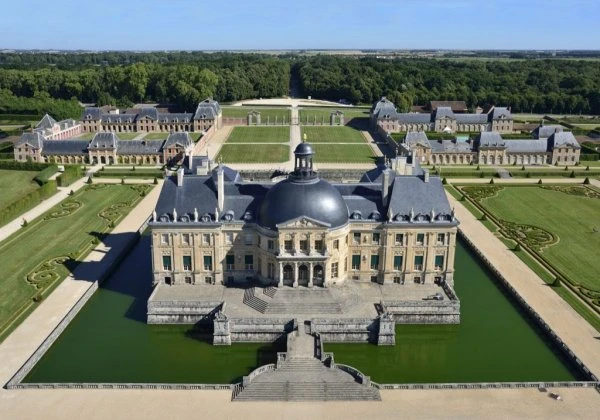
It was there that three men of extraordinary talents, the architect Le Vau, the gardener Le Notre, and the painter Le Brun were employed by its then owner, the unhappily named Fouquet. Poor Fouquet made the huge mistake of showing off his magnificent home to King Louis. The King was indeed impressed - but not in the way Fouquet intended. Louis was envious of his subject and wanted to copy Vaux-le-Vicomte, but the Royal Treasury did not appear to have as much spare cash as Fouquet. The man who had to break this bad news to Louis was his Minister of Finance ...Fouquet.
If Louis had any trouble putting two and two together, he was helped by his clever accountant, one Colbert, who just happened to be next in line to be Minister of Finance. Fouquet was promptly arrested - as it happens by the famous Musketeer d'Artagnan, the model for the hero of the Dumas novels - and his assets seized.
So it was Fouquet off to prison, Colbert off to be Minister of Finance, and the Dream Team of Le Vau, Le Notre, and Le Brun off to Versailles.
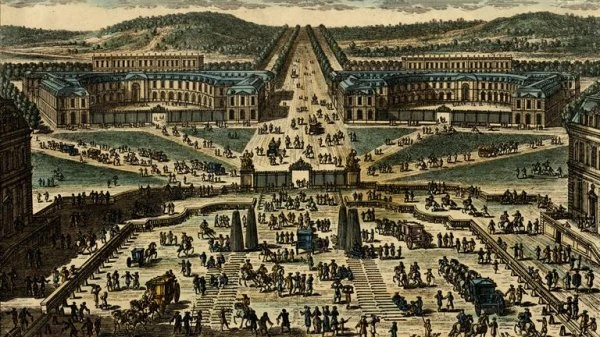
There they gave Louis his copy of Vaux-le-Vicomte, but on a massive scale. The splendour of what they achieved awed Europe, as was intended. It is still a modern wonder of the world. This is conveyed beautifully in Versailles through some superb photography.
If its visual style is the best reason to watch Versailles, it must be balanced against two strong inducements to switch off. The first is its attitude to history. The producers seem to have been influenced by The Tudors, in which writer Michael Hirst took the main characters and events out of history in order to make up his own stories with them. In neither case were the stories as good as what history offered them. The Court of Louis XIV produced a number of gossipy memoirs which would have been far more entertaining than what we got from Versailles - especially if viewers could be assured that what they were seeing was, if not necessarily true, then at least supported by evidence from the time.
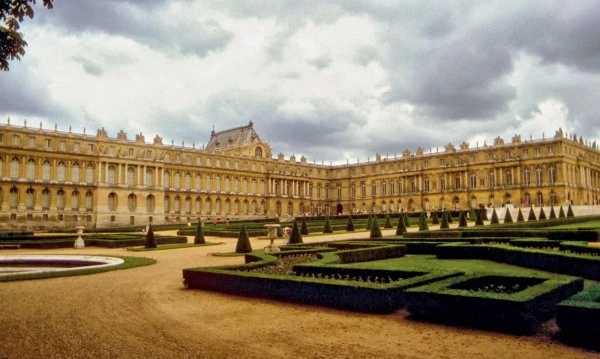
The second is its attitude to sex. One has come to expect a certain quota of bouncing bare breasts, which "the industry" now believes to be compulsory to attract the all-important demographic of males aged 15-30. Yet the thing about the sex in Versailles, as with so many other recent productions, is that it is prurient without being particularly erotic - the aesthetic of a generation with more experience of online pornography than of actual sex, never mind love. Somehow, one expected better from the French.
Caught between triumphs of visual flair on the one hand, and lack of imagination in the script department on the other, the cast struggles to make much of an impact but there are some who emerge with credit.

George Blagden - best known as the monk in Vikings whom everyone likes despite his inability to make up his mind - plays Louis as an intense, driven young man. While it is an interesting performance in its own right, it has little in common with the historical King Louis, a physically imposing figure who hid his emotions behind a facade of imperturbable calm and dignity.
Alexander Vlahos has his moments as Louis' brother, Phillipe, Duke of Orleans, and it is not his fault that his character is written as too much of a spoilt child. The real Phillipe d'Orleans was an accomplished soldier and a major political player.
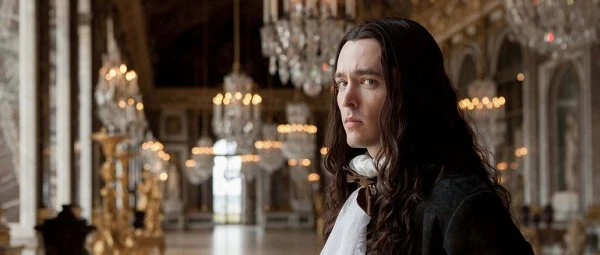
Jessica Clark is a delight as Phillipe's wife, by arranged marriage, the Princess Palatine. She plays her as a practical, down to earth, "jolly hockey sticks" sort of girl, an outsider in the formality and decadence of the French Court, and therefore a welcome breath of fresh air. The same seems to have been true of her historical counterpart.
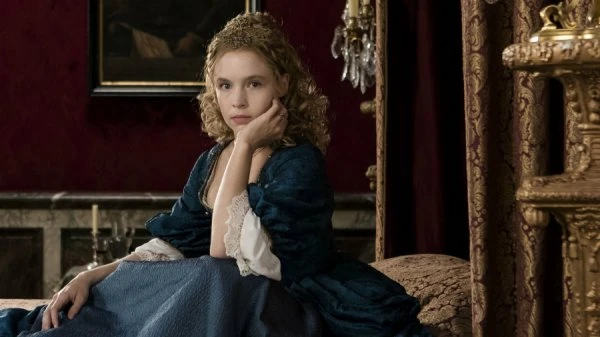
Evan Williams managed to find a surprising sympathetic side to an initially unpleasant character as Phillipe's "favourite" the Chevalier de Lorraine. At a time when homosexual acts really were punished with death, it seems there was one law for the rich and one law for the poor - and no law at all for members of the Royal Family.
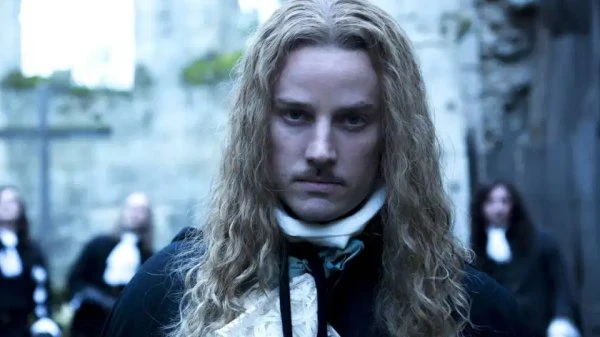
In the end, after much difficulty, Phillipe, his wife, and the Chevalier work things out among themselves and become a strangely likeable trio.
Pip Torrens is fun as a disgruntled personification of the old nobility: it is a pity we do not see more of him. Stuart Bowman is a masterclass in assured competence as the King's faithful valet: the pity in his case is that his character is overused and asked to do, and say, increasingly absurd things for the sake of an increasingly out of control plot.
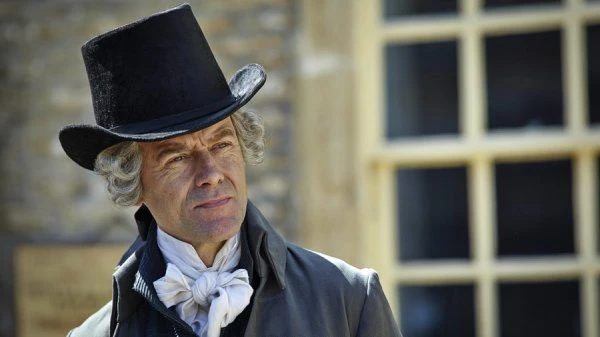
Steve Cumyn as Colbert, the Minister of Finance, and Joe Sheridan as Louvois, the Minister of War, are effective and enjoyable as a sort of two part Chorus in the political scenes. Tygh Runyan exudes a fine air of menace in the annoying fictional role of Louis' "chief of security" - come on, producers, you have the actual d'Artagnan standing just over there!
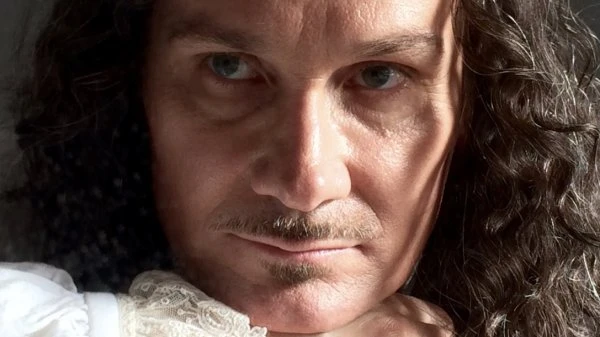
Of Louis' - many - women, Catherine Walker makes the best impression in the potentially difficult role of Madame de Maintenon, providing a convincing answer to the question why the greatest King and womanizer in Christendom finally settled with a devout middle aged lady of relatively low social status.

It still has to be said that Versailles was ultimately a piece of trash that wasted its lavish production values on poor plotting, but, as a piece of trash, it was entertaining. If one managed to stick with it, one found oneself coming to care about some of the characters, and it became something of a guilty pleasure. Even if one never made it to that point, one could always watch the set pieces with the sound turned down because the look of the thing was sometimes a worthwhile aesthetic experience in its own right.
About writer John Winterson Richards
John Winterson Richards is the author of the 'Xenophobe's Guide to the Welsh' and the 'Bluffer's Guide to Small Business,' both of which have been reprinted more than twenty times in English and translated into several other languages. He was editor of the latest Bluffer's Guide to Management and, as a freelance writer, has had over 500 commissioned articles published.
He is also the author of ‘How to Build Your Own Pyramid: A Practical Guide to Organisational Structures' and co-author of 'The Context of Christ: the History and Politics of Rome and Judea, 100 BC - 33 AD,' as well as the author of several novels under the name Charles Cromwell, all of which can be downloaded from Amazon. John has also written over 50 reviews for Television Heaven.
John's Website can be found at John Winterson Richards
Seen this show? How do you rate it?
Seen this show? How do you rate it?
Published on April 16th, 2020. Written by John Winterson Richards for Television Heaven.


